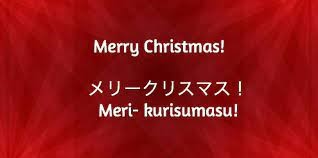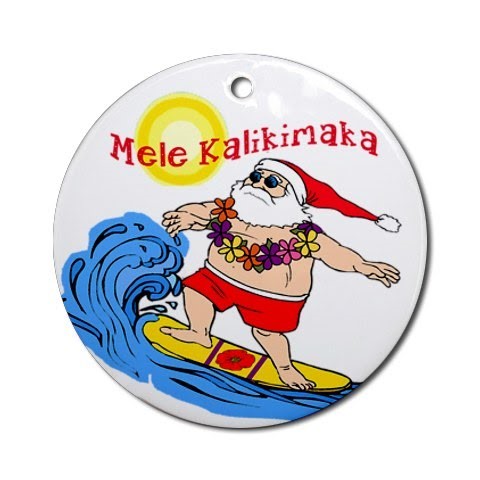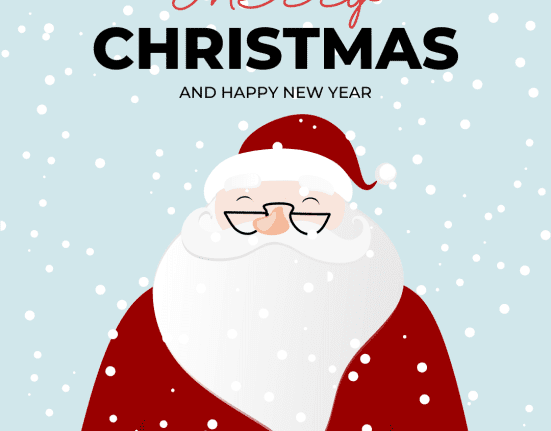Christmas celebrations take place all around the world in Christian society. Whether it’s Japan, Turkey, Africa, China, Hawaii, or France, these countries have their local languages and religion. Merry Christmas consists of different pronunciations and substitutes according to their language and culture. How you say Merry Christmas in French, how to say merry Christmas in Hawaiian and how you say merry Christmas in Japanese are quite different and unique.
On 25th December, people greet each other by saying Merry Christmas otherwise.
The brief description of Merry Christmas expression in three different languages here for information.
How do you say Merry Christmas in Japanese?
Christmas celebration occurs everywhere in the world. In Japan, traditionally, there is no announcement of holidays on Christmas. But in Tokyo and other leading cities, one can see the Christmas decorations in markets and shopping malls.
The inspiration of Western culture is eminent in eating KFC in Japan. It is quirky, though, but it’s their tradition. Japanese celebrate their new year on 1st January. There is no hard and fast rule to saying Merry Christmas in Japanese. Pronunciation is the same as that in English. Its ‘Merii Kurisumasu’ katakana cursive is used for international words and phrases. There is also no need for translation.

Japan’s official holiday of the year is known as Ganjitsu. Business and trade markets close for 2-3 days and open afterwards. Christmas and New Year celebrations happen everywhere. New Year wishes are swapped in Japan on the first day of January.
If you want to wish Happy New Year in Japanese, then say ‘akemashite omdetou’, which means congratulations, a new year is near. Japanese follow Buddhism and belong to the Shinto nation but respect people of other religions too. A foreigner living in Japan celebrates their holy event and exchanges Christmas wishes with friends and local Japanese.
How to say merry Christmas in Hawaiian?
In Hawaiian, pronunciation is different. Hawaiian people use ‘Mele Kalikimaka’ for Merry Christmas. A vowel is present after every consonant. The concept of wishing Happy Christmas and Happy New Year comes from British and American cultures. British people exchange greetings with their people in their language.
They used to say ‘Hi’, ‘Good morning, ‘Hello’, ‘Good day, ‘See you, and ‘Bye’. It’s their culture to greet all people by wishing them well.
The people of Hawaii find difficulty in speaking these words, so they adapt these expressions into their language through translation.

English is not a native language of Hawaii. Different alternates of merry Christmas also exist. In old Hawaiian newspapers, another expression, ‘Aloha Kalikimaka’, Ano’ai Kalikimaka, and Hau’oli Kalikimaka are present for Happy New Year.
The people of Hawaii speak and write on Christmas cards ‘Mele Kalikimaka’ and ‘Hau’oli Makahiki Hou’ to exchange Christmas and New Year wishes with their friends and family.
How do you say merry Christmas in French?
The most common way is to say ‘Joyeux Noël’, which means merry Christmas in French. The people of France celebrate Christmas every year with a joyful holiday spirit. Greeting cards use this common phrase for Christmas wishes. There are two more versions of wishing merry Christmas to friends and family members.
I wish you a merry Christmas is express formally or informally as: ‘Je te souhaite un Joyeux noël’ or ‘Je vous souhaite un Joyeux noël’.

New Year Holidays also come with Christmas as it’s the end of the year. The wishing for Happy Holidays also occurs in a peculiar way.
In French people say: ‘Joyeuses fêtes’, ‘je vous souhaite de joyeuses fêtes’ and ‘joyeuses fêtes de fin d’ année’. These are the most common ways to greet people for the happy Christmas holidays. After that New Year celebration continues.
Holy event celebrations are of utmost importance. These events bring people and family together, and Christmas comes but once a year. Celebrating Christmas is significant so that traditions pass on from generation to generation in a rightful spirit.
This way, children understand the religious differences and festivals of other parts of the world. The practice of expressing merry Christmas in different languages started in the 20th century and now spreads everywhere.





Leave feedback about this